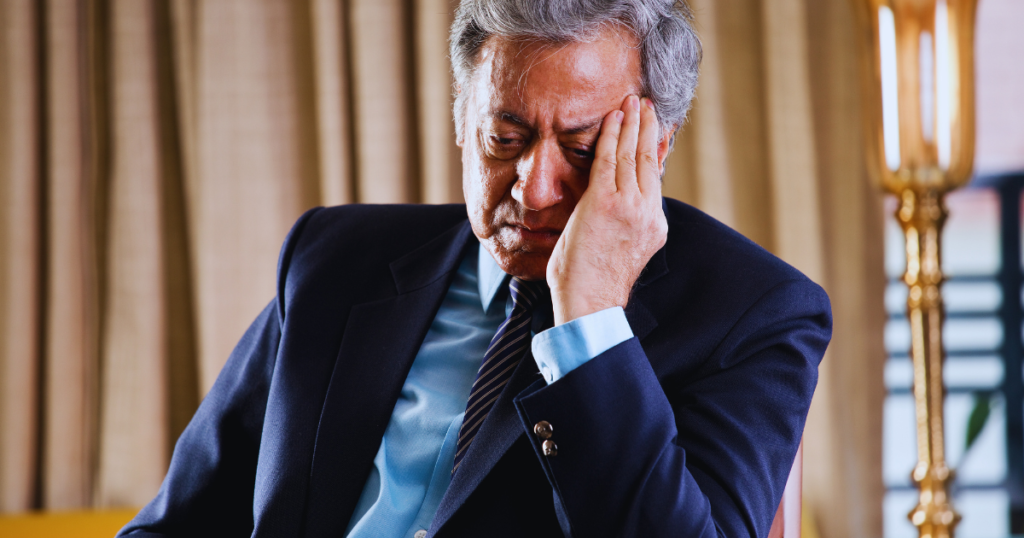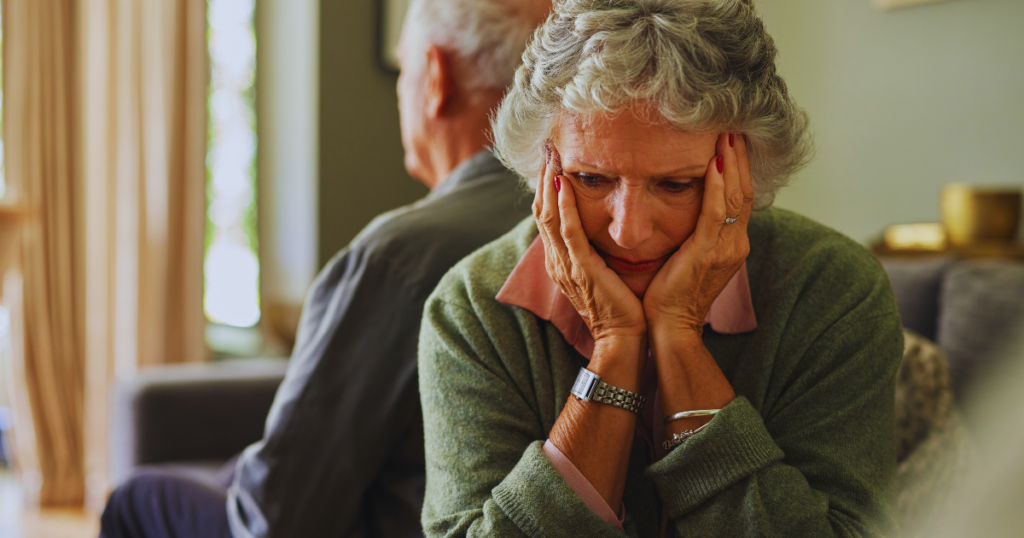
Depression among senior men is a critical issue that often stems from a loss of independence and social isolation. As men age, changes in health, lifestyle, and social dynamics can lead to feelings of loneliness and despair. Addressing these challenges requires a multifaceted approach that combines medical care, social support, and practical strategies for daily life. In this comprehensive guide, we explore the unique factors contributing to depression in senior men, offer actionable insights for coping and recovery, and highlight innovative Amazon products that can support mental well-being and improve quality of life.
Understanding Depression in Senior Men
Depression is a common but serious mental health condition that can affect anyone, regardless of age. For senior men, depression often arises from multiple factors that include physical health issues, diminished social interaction, and a perceived loss of independence. Recognizing the signs of depression is the first step toward seeking help and making positive changes.
Recognizing the Signs
Depression in senior men may manifest as persistent sadness, irritability, or apathy. Physical symptoms such as changes in sleep patterns, fatigue, or loss of appetite can also be indicators. Sometimes, older adults may feel hopeless or disinterested in activities they once enjoyed. It’s important to understand that these symptoms are not simply part of aging; they signal a need for attention and intervention. Early recognition allows for timely support, which can make a significant difference in managing the condition.

Contributing Factors
Several factors contribute to depression among senior men. Chronic health issues, including heart disease and diabetes, can limit physical activity and independence. Losing a spouse, retirement, and reduced social circles often lead to isolation. When seniors feel disconnected from family and friends, the emotional burden can become overwhelming. Additionally, societal expectations and internalized stereotypes about masculinity may discourage senior men from discussing their feelings or seeking help, further exacerbating the problem.
The Impact of Loss of Independence and Social Isolation
Loss of independence is a major contributor to depression. As physical abilities decline, seniors may become reliant on others for daily tasks. This shift can erode self-esteem and lead to a sense of powerlessness. Social isolation compounds these feelings, as reduced interactions with family and friends leave seniors without a support network to share their struggles.
The Psychological Toll of Dependency
For many senior men, the need for assistance in everyday activities is a difficult reality to accept. Losing the ability to perform tasks independently can lead to frustration, anger, and deep-seated sadness. These emotions, if left unaddressed, can spiral into clinical depression. Accepting help and learning to appreciate the benefits of a supportive community are essential steps in overcoming these challenges.
Social Isolation and Its Consequences
Isolation is particularly damaging to mental health. When seniors are cut off from social interactions, they lose opportunities for emotional support and engagement. This isolation can worsen feelings of loneliness and contribute to a cycle of depression. Maintaining regular contact with loved ones, engaging in community activities, and exploring new hobbies are effective ways to break this cycle and reestablish a sense of connection and purpose.
Effective Strategies for Coping and Recovery
Addressing depression in senior men involves both professional intervention and personal strategies that focus on enhancing physical, emotional, and social well-being. Combining these approaches can lead to a more balanced and fulfilling life.
Seeking Professional Help
One of the most important steps is to seek help from a healthcare professional. Therapists and counselors specializing in geriatric mental health can provide tailored treatment plans that address both the emotional and physical aspects of depression. In some cases, medication may be recommended to manage symptoms, but it should always be part of a comprehensive treatment strategy that includes lifestyle changes and support.

Engaging in Physical Activity
Regular exercise is a proven method for reducing symptoms of depression. Physical activity boosts endorphins, improves cardiovascular health, and increases overall energy levels. Activities like walking, swimming, or yoga can be particularly beneficial. For seniors, integrating even moderate exercise into daily routines can lead to significant improvements in mood and overall health.
Building Social Connections
Reconnecting with family, friends, and community is crucial. Participating in group activities, joining clubs, or attending local events can help rebuild social networks and provide emotional support. These interactions not only combat isolation but also create opportunities to share experiences and foster a sense of belonging. Whether it’s a weekly game night or regular outings, social engagement plays a key role in combating depression.
Embracing Hobbies and Creative Expression
Pursuing hobbies and creative activities can serve as a powerful outlet for emotional expression and stress relief. Engaging in art, music, or even gardening provides a sense of accomplishment and can help rebuild self-esteem. Hobbies also offer opportunities to meet like-minded individuals, further reducing feelings of isolation. Finding activities that bring joy and fulfillment can be transformative for mental health.
Leveraging Amazon Products for Improved Well-Being
Modern technology and high-quality products can support seniors in their journey toward better mental health. Innovative tools can facilitate physical activity, enhance social engagement, and provide comfort in daily routines. Here are three popular Amazon products that have become favorites among seniors:
Gravity Blanket Weighted Blanket
The Gravity Blanket Weighted Blanket is designed to provide deep pressure stimulation that can help reduce anxiety and promote better sleep. For many seniors, quality sleep is a challenge, and poor rest can worsen symptoms of depression. The gentle pressure of a weighted blanket mimics the sensation of being held, which can create a calming effect and help regulate stress levels. By incorporating this product into their nightly routine, seniors may experience improved sleep quality, which is critical for overall mental health and energy levels.
Fitbit Inspire 2
The Fitbit Inspire 2 is a popular wearable device that encourages physical activity by tracking daily steps, monitoring heart rate, and providing insights into sleep patterns. Regular exercise is a key component of managing depression, and this user-friendly device can motivate seniors to stay active. With its simple interface and long battery life, the Fitbit Inspire 2 helps seniors set and achieve fitness goals, monitor their progress, and maintain a healthy, active lifestyle. Increased physical activity not only boosts mood but also contributes to better overall health, reducing the risk of chronic conditions.
Kindle Paperwhite
The Kindle Paperwhite offers a portable and accessible way for seniors to explore literature and self-help resources that address mental health and personal growth. With its glare-free display and adjustable lighting, the Kindle Paperwhite is perfect for reading in any environment. Seniors can access a vast library of eBooks on topics such as mindfulness, cognitive behavioral therapy, and inspirational memoirs. This easy-to-use device encourages continuous learning and provides a valuable source of comfort and guidance. Reading can be both a form of escapism and a practical way to gain insights into managing depression, fostering a more informed and positive mindset.
Integrating Strategies for a Healthier Future
Combining professional support, lifestyle modifications, and the right tools creates a robust framework for overcoming depression in senior men. It is important to view mental health as an integral part of overall well-being and to address it through a comprehensive, proactive approach.
Developing a Holistic Health Routine
A holistic approach to managing depression involves integrating physical exercise, social engagement, and creative expression into a daily routine. By setting aside time each day for activities that promote well-being, seniors can create a balanced lifestyle that supports both physical and emotional health. Using the Gravity Blanket for relaxation, tracking physical activity with the Fitbit Inspire 2, and indulging in reading with the Kindle Paperwhite, seniors can tailor their routines to meet their unique needs.
Encouraging Open Communication
Talking openly about mental health is crucial. Seniors should feel empowered to discuss their feelings with healthcare providers, family members, and peers. Whether through support groups or individual counseling, sharing experiences can provide validation and reduce the stigma associated with depression. Open dialogue fosters a supportive environment where seniors can access the help they need and develop strategies for coping with loss of independence and isolation.
Embracing Technology for Better Self-Care
Modern technology offers numerous opportunities for seniors to manage their mental health more effectively. Digital devices and online platforms provide access to telemedicine, fitness tracking, and educational resources that support a comprehensive approach to self-care. By leveraging these tools, seniors can monitor their health, set reminders for self-care practices, and engage with communities that share their challenges and goals. This digital empowerment leads to improved self-awareness and a proactive attitude toward mental health management.

Future Trends in Mental Health and Aging
As the population ages, the focus on mental health among senior men is likely to grow, with new trends and technologies emerging to support well-being. Advances in telehealth, personalized medicine, and digital health monitoring will provide seniors with even more tools to manage depression and other mental health challenges. Future innovations may include virtual reality therapy, AI-driven mental health apps, and more sophisticated wearable devices that offer real-time insights into both physical and emotional well-being. These developments will empower seniors to take a more active role in their health management and improve their overall quality of life.
Personalized Health and Mental Wellness
The future of mental health care is moving toward personalization. Tailored treatment plans that consider genetic, environmental, and lifestyle factors will become more common, ensuring that each senior receives care suited to their unique needs. Personalized digital tools, coupled with traditional therapeutic approaches, will provide a more integrated and effective way to manage depression. As these technologies evolve, seniors will benefit from a level of care that is both comprehensive and deeply personalized.
Enhanced Connectivity and Support Networks
Digital connectivity is set to play an even larger role in supporting mental health. As more seniors become comfortable with online communication, virtual support groups and teletherapy sessions will continue to grow in popularity. These platforms offer a safe space for sharing experiences and receiving support from peers and professionals alike. Enhanced connectivity will help bridge the gap between physical isolation and the need for social interaction, contributing to a stronger, more resilient community of seniors.
Conclusion
Depression in senior men is often intertwined with the challenges of losing independence and facing social isolation, but it is a condition that can be managed effectively with the right approach. By combining professional help, lifestyle modifications, and the support of innovative digital tools, seniors can overcome the emotional and physical hurdles associated with depression. Key strategies include adopting a healthy routine that incorporates regular exercise, maintaining social connections, and engaging in creative pursuits that foster self-expression. Utilizing trusted Amazon products such as the Gravity Blanket Weighted Blanket, the Fitbit Inspire 2, and the Kindle Paperwhite provides practical, user-friendly solutions to support mental health and improve overall quality of life. Each of these products offers unique benefits, ranging from enhanced sleep and reduced anxiety to increased physical activity and access to a wealth of knowledge that empower seniors to take charge of their well-being. As technology and personalized healthcare continue to evolve, the future of mental health support for senior men looks increasingly promising, with innovative tools and connected communities paving the way for a more resilient, empowered, and joyful aging process. May this guide serve as a valuable resource for seniors, their families, and caregivers, inspiring informed decisions and a proactive approach to mental health that fosters independence, connection, and lasting vitality.
